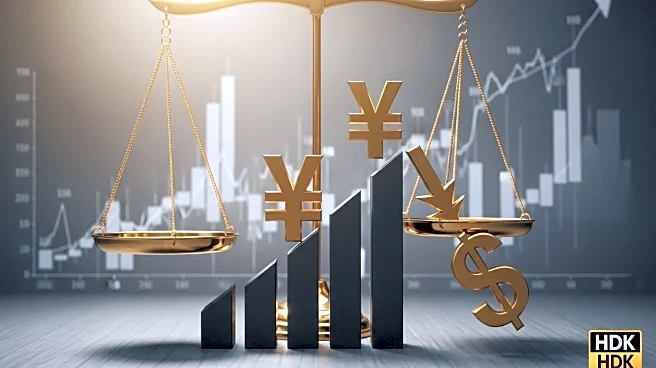What's Happening?
BCA Research has indicated that the U.S. dollar is currently 'extremely overvalued' and predicts a decline in its strength over the next five years. According to Garry Evans of BCA Research, the dollar-yen exchange rate could reach 100 in the coming years. This forecast is influenced by several factors, including Japan's high inflation and tight labor market, as well as anticipated interest rate cuts by the Federal Reserve. The recent appointment of Takaichi as the LDP President in Japan is also expected to play a role in the yen's strengthening.
Why It's Important?
The potential decline in the U.S. dollar's value could have significant implications for international trade and investment. A weaker dollar may benefit U.S. exporters by making American goods cheaper for foreign buyers, potentially boosting the U.S. economy. Conversely, it could increase the cost of imports, affecting consumer prices and inflation. For Japan, a stronger yen could impact its export-driven economy by making Japanese products more expensive abroad, potentially affecting its trade balance. Investors and businesses with international exposure will need to adjust their strategies in response to these currency fluctuations.
What's Next?
As the U.S. dollar's value is expected to decline, businesses and investors may need to reassess their currency risk management strategies. The Federal Reserve's future interest rate decisions will be closely monitored, as they will significantly influence the dollar's trajectory. Additionally, Japan's economic policies under the new LDP leadership will be pivotal in determining the yen's strength. Stakeholders in both countries will likely engage in strategic planning to mitigate potential adverse effects and capitalize on new opportunities arising from these currency shifts.











